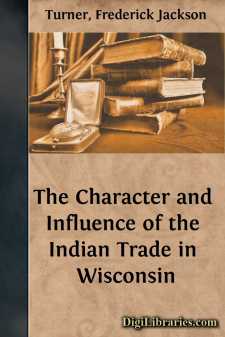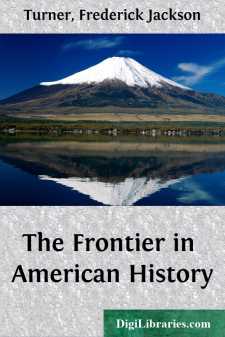Categories
- Antiques & Collectibles 13
- Architecture 36
- Art 48
- Bibles 22
- Biography & Autobiography 813
- Body, Mind & Spirit 142
- Business & Economics 28
- Children's Books 15
- Children's Fiction 12
- Computers 4
- Cooking 94
- Crafts & Hobbies 4
- Drama 346
- Education 46
- Family & Relationships 57
- Fiction 11828
- Games 19
- Gardening 17
- Health & Fitness 34
- History 1377
- House & Home 1
- Humor 147
- Juvenile Fiction 1873
- Juvenile Nonfiction 202
- Language Arts & Disciplines 88
- Law 16
- Literary Collections 686
- Literary Criticism 179
- Mathematics 13
- Medical 41
- Music 40
- Nature 179
- Non-Classifiable 1768
- Performing Arts 7
- Periodicals 1453
- Philosophy 64
- Photography 2
- Poetry 896
- Political Science 203
- Psychology 42
- Reference 154
- Religion 513
- Science 126
- Self-Help 84
- Social Science 81
- Sports & Recreation 34
- Study Aids 3
- Technology & Engineering 59
- Transportation 23
- Travel 463
- True Crime 29
The Character and Influence of the Indian Trade in Wisconsin
Categories:
Description:
Excerpt
INTRODUCTION.
The trading post is an old and influential institution. Established in the midst of an undeveloped society by a more advanced people, it is a center not only of new economic influences, but also of all the transforming forces that accompany the intercourse of a higher with a lower civilization. The Phœnicians developed the institution into a great historic agency. Closely associated with piracy at first, their commerce gradually freed itself from this and spread throughout the Mediterranean lands. A passage in the Odyssey (Book XV.) enables us to trace the genesis of the Phœnician trading post:
"Thither came the Phœnicians, mariners renowned, greedy merchant-men with countless trinkets in a black ship.... They abode among us a whole year, and got together much wealth in their hollow ship. And when their hollow ship was now laden to depart, they sent a messenger.... There came a man versed in craft to my father's house with a golden chain strung here and there with amber beads. Now, the maidens in the hall and my lady mother were handling the chain and gazing on it and offering him their price."
It would appear that the traders at first sailed from port to port, bartering as they went. After a time they stayed at certain profitable places a twelvemonth, still trading from their ships. Then came the fixed factory, and about it grew the trading colony. The Phœnician trading post wove together the fabric of oriental civilization, brought arts and the alphabet to Greece, brought the elements of civilization to northern Africa, and disseminated eastern culture through the Mediterranean system of lands. It blended races and customs, developed commercial confidence, fostered the custom of depending on outside nations for certain supplies, and afforded a means of peaceful intercourse between societies naturally hostile.
Carthaginian, Greek, Etruscan and Roman trading posts continued the process. By traffic in amber, tin, furs, etc., with the tribes of the north of Europe, a continental commerce was developed. The routes of this trade have been ascertained. For over a thousand years before the migration of the peoples Mediterranean commerce had flowed along the interlacing river valleys of Europe, and trading posts had been established. Museums show how important an effect was produced upon the economic life of northern Europe by this intercourse. It is a significant fact that the routes of the migration of the peoples were to a considerable extent the routes of Roman trade, and it is well worth inquiry whether this commerce did not leave more traces upon Teutonic society than we have heretofore considered, and whether one cause of the migrations of the peoples has not been neglected.
That stage in the development of society when a primitive people comes into contact with a more advanced people deserves more study than has been given to it. As a factor in breaking the "cake of custom" the meeting of two such societies is of great importance; and if, with Starcke, we trace the origin of the family to economic considerations, and, with Schrader, the institution of guest friendship to the same source, we may certainly expect to find important influences upon primitive society arising from commerce with a higher people....



